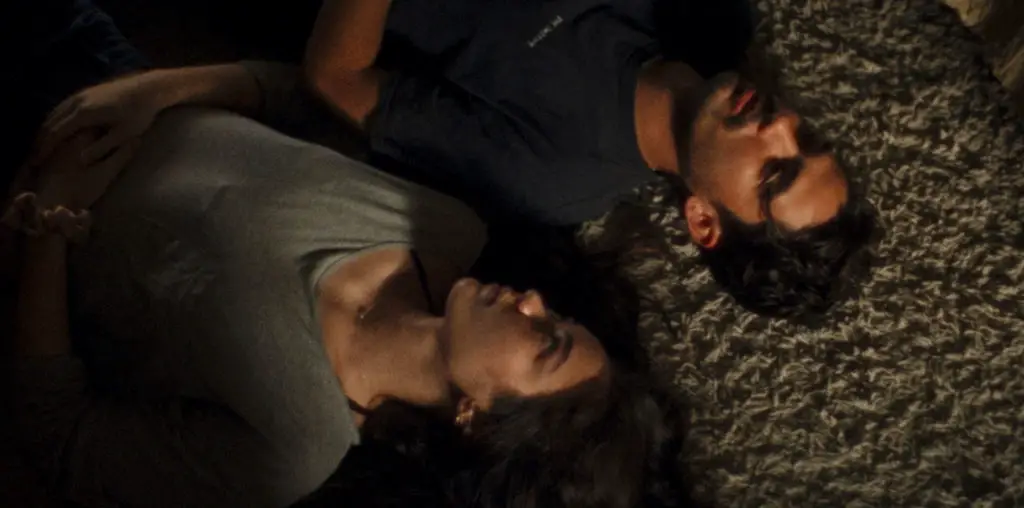
Check out Jeremy’s previous reports as he braves the 2004 Cannes Film Festival>>>
At the Cannes Film Festival’s sole normal screening of Michael Moore’s “Fahrenheit 9/11,” the documentarian received two standing ovations, one before and one after his new film. The one after lasted longer than 10 minutes. Moore looked moved, embarrassed and tearful as each of his motions for the audience to stop created more applause.
His film has been the most anticipated film of the festival, as it arrived shortly after Moore criticized Disney for the decision not to allow subsidiary Miramax to release the film. The audience in France also loved Moore’s Bowling for Columbine in 2002, and the new film was even more appealing to its crowd as it criticized George W. Bush and his administration’s actions following the Sept. 11, 2001 terrorist attacks. Moore’s film is impressively up-to-date, including footage from the congressional hearings and other recent events.
Moore uses some of his usual guerilla tricks in the film, but does not appear on screen very frequently and often abandons his humorous tone due to the serious nature of his subject matter, which includes Patriot Act-related actions and dying soldiers. Archival news footage and still photographs are often used over commentary from Moore.
The film ends with a heartbreaking and powerful second half that shows the suffering and confusion of soldiers in Iraq and the soldiers’ families who don’t understand why Bush has placed their loved ones in such danger. In a moment of his trademark technique, Moore walks around Washington and tries to convince congressmen to sign their own children up for the military.
“Fahrenheit 9/11” features many clever musical cues and editing gags to point out the illogical elements of the administration’s arguments. Moore takes advantage of Bush’s less-than-eloquent, often buffoonish public speaking abilities and his frequent vacationing, as the president says that it’s important to get the terrorists, then tells the media to watch him hit a golf ball. Moore also repeatedly shows the president’s facial expressions when he was informed that the country was under attack and continued reading to grade-school students.
The film could doubtlessly benefit from some tighter editing in its early sections, in which Moore labors over examples of Bush’s misbehavior, including the family’s affiliation with the Bin Laden family. The validity of some of the film’s claims will likely be called into question as well, as Moore doesn’t have any response from Bush (except to “find a real job”). Also, it seems like more important issues could have been addressed in the time spent on others.
Moore’s style has always been to present an opinionated argument, so those looking for an objective study will obviously not find one, and those arguing that the film shouldn’t have an impact on the election will have reasonable arguments. But Moore’s footage of disoriented soldiers in Iraq and their bereaved families is undeniably powerful, and in an election this close, could move people to vote against the man responsible.
Keep checking back for further coverage of the 2004 Cannes Film Festival. Until then, let’s hear some Back Talk>>>
